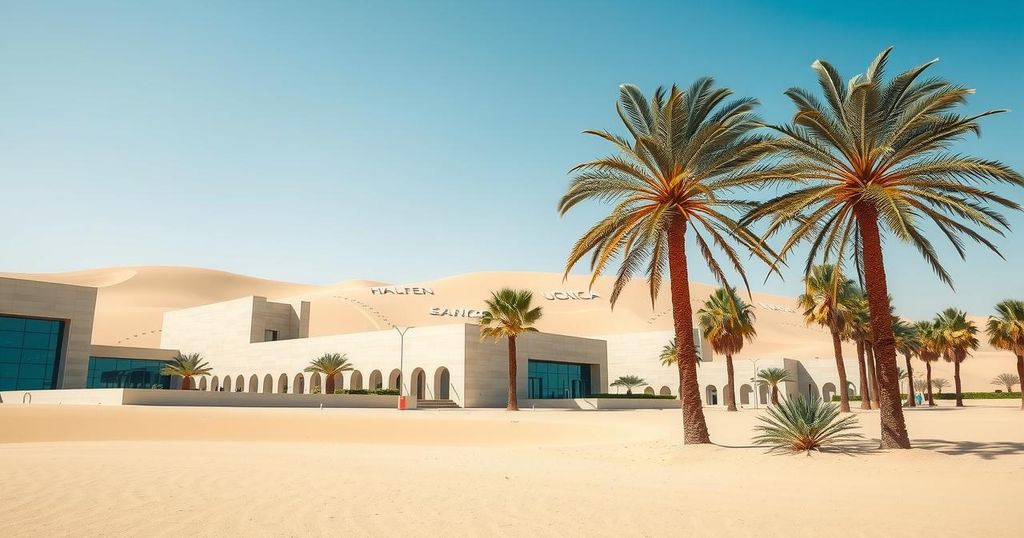Global news
ABU DHABI, AHMAD AL - SHARAA, AL - SHARAA, ASIA, ASSAD, BEIRUT, CEASEFIRE, CONFLICT, DAMASCUS, DIPLOMACY, EMIRATES NEWS AGENCY, GULF, ISRAEL, LEBANON, MIDDLE EAST, QATAR, SAUDI ARABIA, SHA, SYRIA, SYRIAN CIVIL WAR, SYRIAN CONFLICT, U. N, UAE, UNITED ARAB EMIRATES, WAM
Fatima Khan
0 Comments
Syria’s President Ahmad al-Sharaa Visits the United Arab Emirates
Syrian President Ahmad al-Sharaa visited the UAE, where he met with Sheikh Mohammed bin Zayed Al Nahyan. They discussed mutual interests and developments in the region. The UAE, historically cautious about Islamist movements, maintains a careful stance towards Syria’s new leadership, which faces significant internal and external challenges, particularly from Israel.
On Sunday, Syrian President Ahmad al-Sharaa conducted his inaugural visit to the United Arab Emirates following the fall of former President Bashar Assad. The UAE has maintained a watchful stance towards Syria’s new leadership during the past four months. According to the Emirates News Agency (WAM), Sheikh Mohammed bin Zayed Al Nahyan, the UAE President, met with Sharaa in Abu Dhabi, extending his wishes for success in leading Syria towards development, security, and stability.
During their meeting, the two leaders addressed several matters of mutual interest and exchanged perspectives regarding regional and international developments. The UAE severed its ties with Assad’s regime in response to the civil unrest that began in 2011 but resumed relations in 2018 by reopening its embassy in Damascus. In a significant moment, Assad himself visited the UAE last year, marking his first trip to an Arab nation since the outbreak of the civil war.
While other Gulf nations, such as Saudi Arabia and Qatar, quickly welcomed al-Sharaa’s administration, the UAE has taken a more reserved approach due to its concerns over Islamist political movements. Consequently, the newly appointed Syrian leadership is focusing on strengthening regional affiliations amid efforts to rehabilitate the nation after 14 years of conflict and manage the various armed factions within Syria.
At present, Syria’s new government is contending with challenges posed by Israel, which commenced a series of airstrikes and deployed ground forces to a U.N.-monitored buffer zone on Syrian land following Assad’s downfall. The Israeli government defends its actions as necessary for border security, countering calls from Syrian and U.N. officials to retract their presence, citing a violation of a 1974 ceasefire agreement.
Given its normalized relations with Israel, the UAE is positioned to potentially mediate between Syrian authorities and Israel.
In summary, the visit of Syrian President Ahmad al-Sharaa to the United Arab Emirates marks a significant development in Syria’s shifting political landscape following the overthrow of Bashar Assad. The UAE’s cautious approach contrasts with other Gulf nations’ rapid acknowledgment of Syria’s new leadership. Challenges persist as Syria’s authorities strive to unify territorial control and address foreign military actions, notably from Israel, amidst ongoing efforts to rebuild the war-torn nation.
Original Source: www.hindustantimes.com




Post Comment